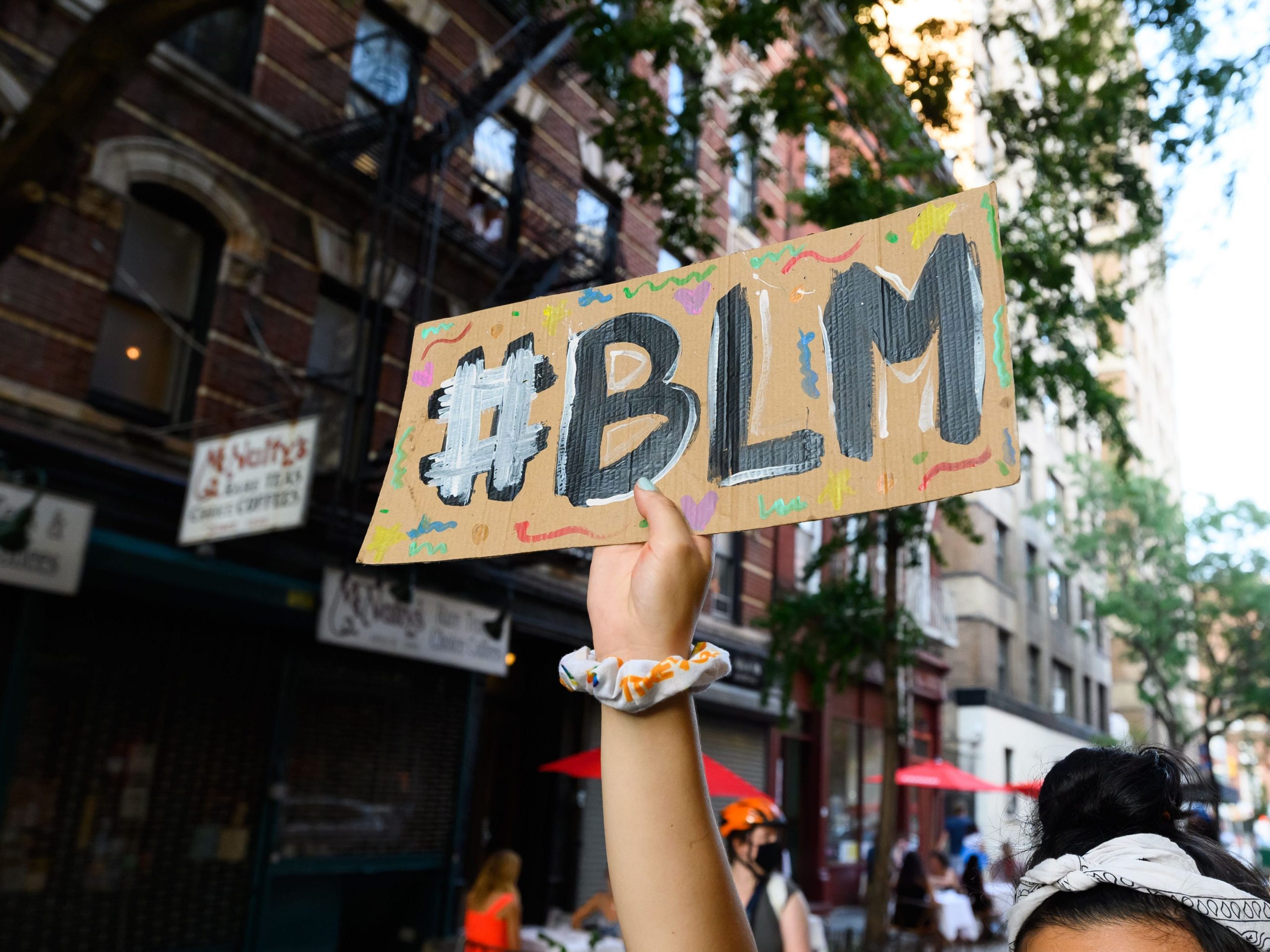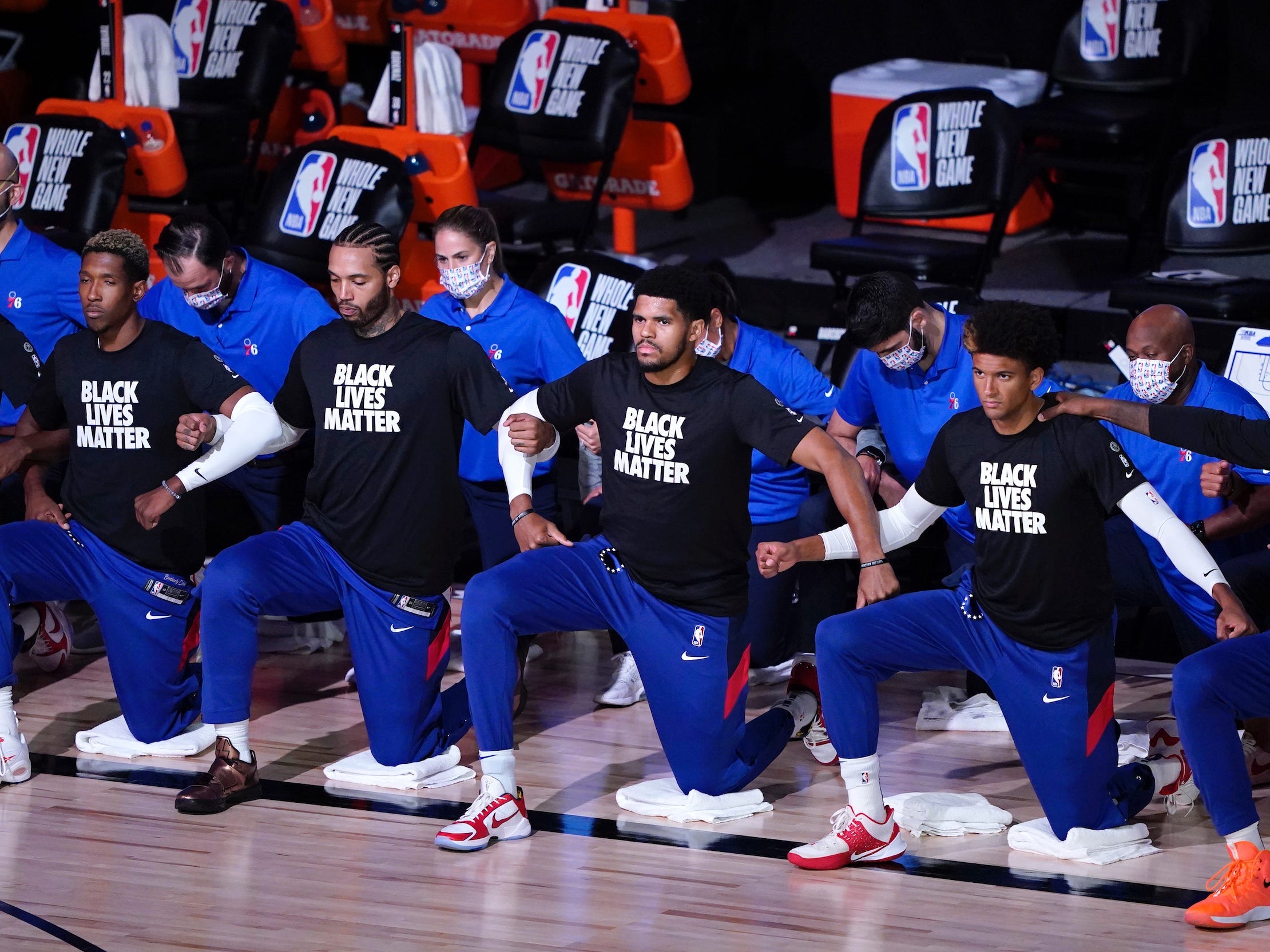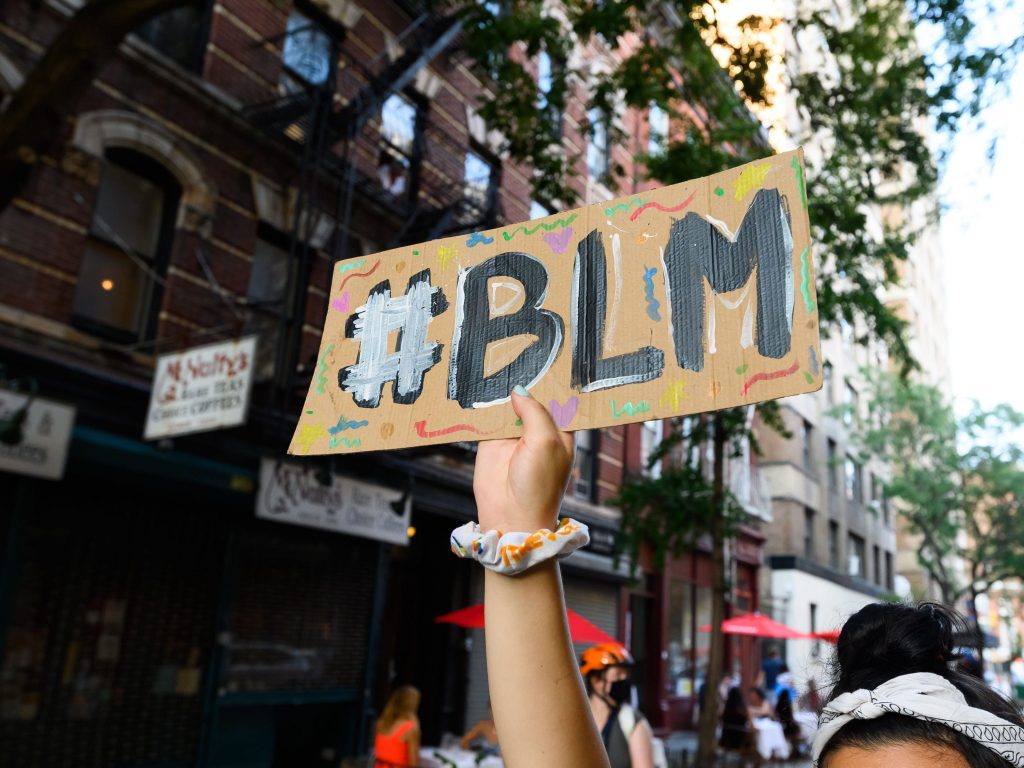
- Prior to federal status, companies like Nike, Spotify, and Target gave employees Juneteenth off.
- Insider's Grace O'Connell-Joshua writes that without advocacy, gestures are performative activism.
- She writes honoring Juneteenth means passing voting rights, policing and economic legislation.
- Visit Insider's homepage for more stories.
Old Navy faced backlash last month after a leaked pitch email was sent to 300 Black influencers soliciting them to engage their large following with an upcoming Juneteenth campaign.
Influencers were asked to post themselves in branded, Juneteenth T-shirts, which they were required to purchase on their own.
The company offered them a $450 payment in exchange for their sponsored posts, a much lower rate for similar projects offered to white influencers. After facing backlash for low-balling Black talent, Old Navy suspended their campaign, They are yet to continue their Juneteenth T-shirt sale.
The Gap Inc.-owned brand certainly isn't the first to turn Juneeteenth into a marketing campaign idea instead of a celebration of Black liberation and freedom for all.
How could we forget the flurry of black squares and black fist emojis posted during last summer's protests?
The Pew Research Center found that millions more took to social media, using the hashtags #BlackLivesMatter and #DefundThePolice to voice support for the movement.
Posts were just shared by coworkers and friends, but by corporations aimed at a public statement that they value Black lives as well as Black dollars.
Or at the very least appear that they do.
Companies banked big on Black bucks in wake of 2020's unrest

Following the murder of George Floyd in May of last year, companies like Nike, Spotify, Lyft, Target and the NFL made the decision to make 'Juneteenth' or June 19th - the day 155 years ago that African Americans in Texas learned they were free from slavery - a company holiday.
Before becoming a federally recognized holiday this week, other companies like Twitter had even gone to the step of making it a paid holiday for all employees.
It only took corporate America 155 years, but finally they started to talk about race and take a public stand on social justice issues, even more now as the nation adopts a decades-long African-American holiday for jubilation.
While posting hashtags on their social pages or giving employees the day off for Juneteenth is a start, it hardly shows any concrete, authentic efforts to solve the problems plaguing Black Americans.
What cannot be ignored is the background in which this shift occurs.
Black Americans are dying of Covid-19 at a disproportionate rate compared to their white counterparts. Massive unemployment left more Black Americans jobless than any other group during the pandemic. Black businesses have closed at a higher rate than whites.
Throughout it all, viral videos of Black people being hunted down, kneed on, or shot in their sleep have dominated the media and ignited protests for racial justice in nearly every major U.S. city as well as around the world.
The social landscape is shifting, drastically. So what other choice did these companies have?
Consumers are no longer okay with giving their money to companies that do not align with their social views, especially when it comes to race.
As 2020 ignited a social and racial reckoning in America, corporations learned saying nothing or doing nothing in acknowledgment of the movement for Black lives could lead to consumers taking their money to small businesses that did.
So was it a sudden epiphany that these companies collectively decided that Black issues were worth discussing or did they just see dollar signs?
It's performative activism.
Performative activism is exactly that when an influencer shows up to a protest for a selfie, holding a sign that reads "silence is violence" to throw up on an IG feed, before grabbing brunch. Or posting a photo of a James Baldwin novel that ends up collecting dust.
"You have this social approval that comes with posting - we conflate likes and views and follows with value," Jordi Bertrán Ramirez, who organized protests at Harvard and Yale during the summer of 2020, told reporters on the podcast "Full Disclosure."
"So even with people who are of the best intentions, you're trying to play this game, this algorithm, of social media, while trying to promote something that is inherently not individualistic," he added.
For influencers, that's the thin line between performative allyship and actual progress: marking their intentions or centering themselves in a movement not meant for them.
Without accountability, they're free to go back to ignoring harmful microaggressions, trendy appropriation and feigned empathy for the everyday experiences of Black people.
While the acknowledgement of Juneteenth federally is a welcome first step toward racial reckoning in terms of policy, for corporations, how many people are helped by the posting of a Black square, or giving their employees the day off?
-Frederick Joseph (@FredTJoseph) June 17, 2021
These types of virtue signals clearly intended on maintaining capital and cultural relevance are not the types of changes Black people wanted to see as a result of the summer of 2020.
Addressing police brutality, ending mass incarceration, reparations, tackling the economic disparities, fixing public housing - dismantling inherently racist institutions in America is Black people want.
This Juneteenth should be about the liberation of Black people in America, the celebration of progress in civil rights. That means centering those who have given their lives to fighting for racial equality.
It should mean passing the For the People Act on voting rights, with Sen. Joe Manchin of West Virginia getting out of the way of progress.
Celebrating Juneteenth should mean an end to the disenfranchisement of Black people - not an Instagram graphic, or any other bare minimum, performative gesture to hold on to capital.
